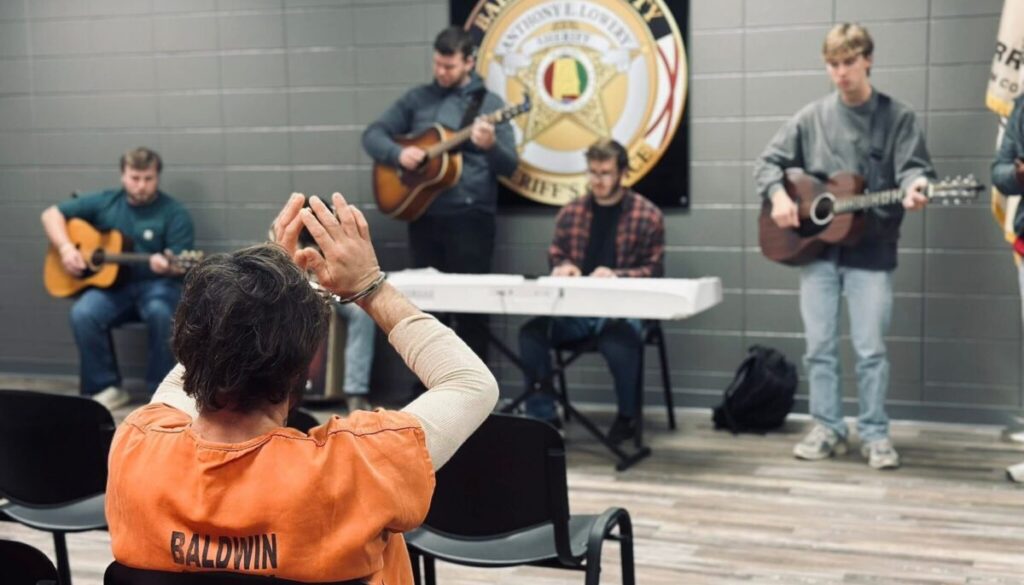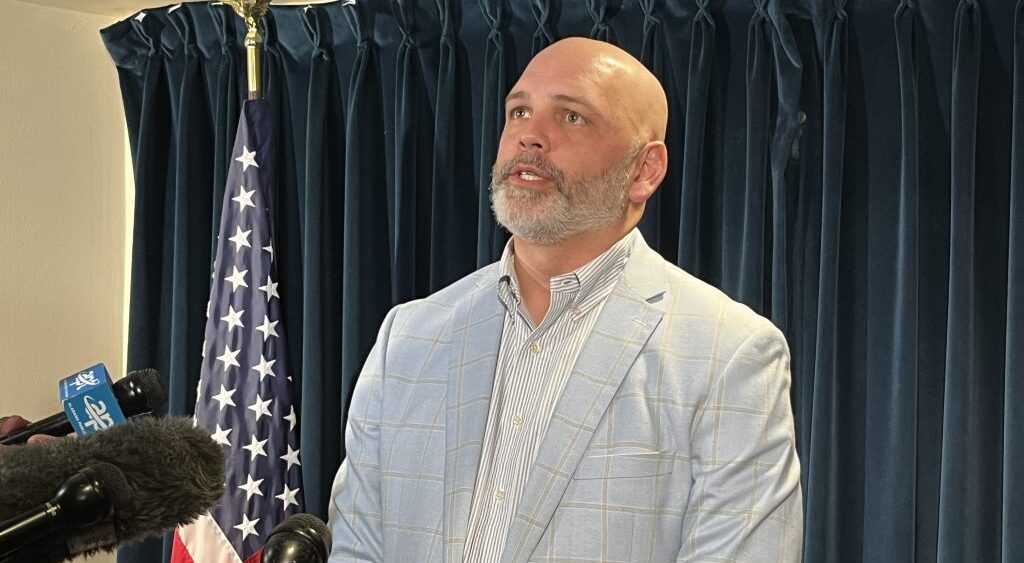Despite its popularity among listeners, contemporary Christian music station WRRS-FM 101.1 Reality Radio has been given until the end of the year to show it can stop losing money.
Steve Shelton, president of STG Media LLC in Huntsville, which recently purchased the radio station, said he supports the station’s ministry but added Reality has to end financial losses that have plagued the station’s operation.
“It can’t continue to run that way,” said Shelton, pointing out Reality usually loses a six-figure total each month. “That station is an open wound,” he added.
“I believe in what they’re doing, I believe in their vision,” he said. “With the signal they have, with the studio facility they have, they can do a whole lot better.”
Despite his belief in the station, Shelton said operating it does not come free. He said the station is in debt for more than $10 million, in addition to daily operating costs.
“We are totally committed to keeping this format on the air and we hope to show the promise of profitability,” said Bill Hardekopf, general manager of the station.
STG purchased Reality Radio’s tower and license for an undisclosed amount and assumed financial responsibility of the station Sept. 1. Hardekopf said the sale must still be approved by the Federal Communications Commission, which usually takes 90-100 days.
Lives impacted
The sale is welcome news for the station’s employees and board of directors. Despite hearing what Hardekopf said are numerous success stories of lives impacted, he added Reality has struggled financially since it began broadcasting Nov. 23, 1998.
Hardekopf said Reality Radio’s expenses are higher than its revenue, noting most radio stations take three to five years before they begin to show a profit.
Since its first broadcast, Hardekopf said a large portion of the station’s support had come from donations by individuals and churches, along with the station’s 22-member board of directors.
Two other reasons cited by Hardekopf for Reality’s failure to meet expenses were that it is the only “stand-alone station” in its market and also is limited in the type of advertisements it can accept.
“If you’re part of a group, you can spread the (operating) cost over other stations in your group,” he said, addressing the advantage of being part of a family of radio stations.
A station with a Christian format must also reject a quarter to a third of advertisements that air on secular stations. “There are some limitations,” we have.
Hardekopf said advertisements for alcoholic products, nightclubs, R-rated movies, etc., would not be appropriate for Reality Radio.
Board members James Spann, Mike Whitten, Rod McSweeney and Dale Wallace were praised by Shelton for their efforts in keeping the station alive.
But he added the board of directors made mistakes in operating the station because “they weren’t radio people.”
Hardekopf said a two-day “Radiothon” in August when Reality asked listeners to help financially not only raised $90,000, but also led to its purchase by Shelton.
The general manager said the “Radiothon” also brought calls from listeners who shared the impact the station had on their lives.
“There was testimony after testimony,” Hardekopf said.
Spann also pointed to the encouragement offered through telephone calls to the station during the “Radiothon.”
“One of the most moving ones was from a man who was incarcerated,” he said.
Spann said the inmate phoned in during the “Radiothon” and later mailed the station stamps to help financially. “I don’t think I’ll ever forget that,” he said.
Hardekopf said Shelton’s children heard of the station’s plight during the “Radiothon” and called their father to encourage him to listen, thus leading to Shelton’s purchase of the station.





Share with others: